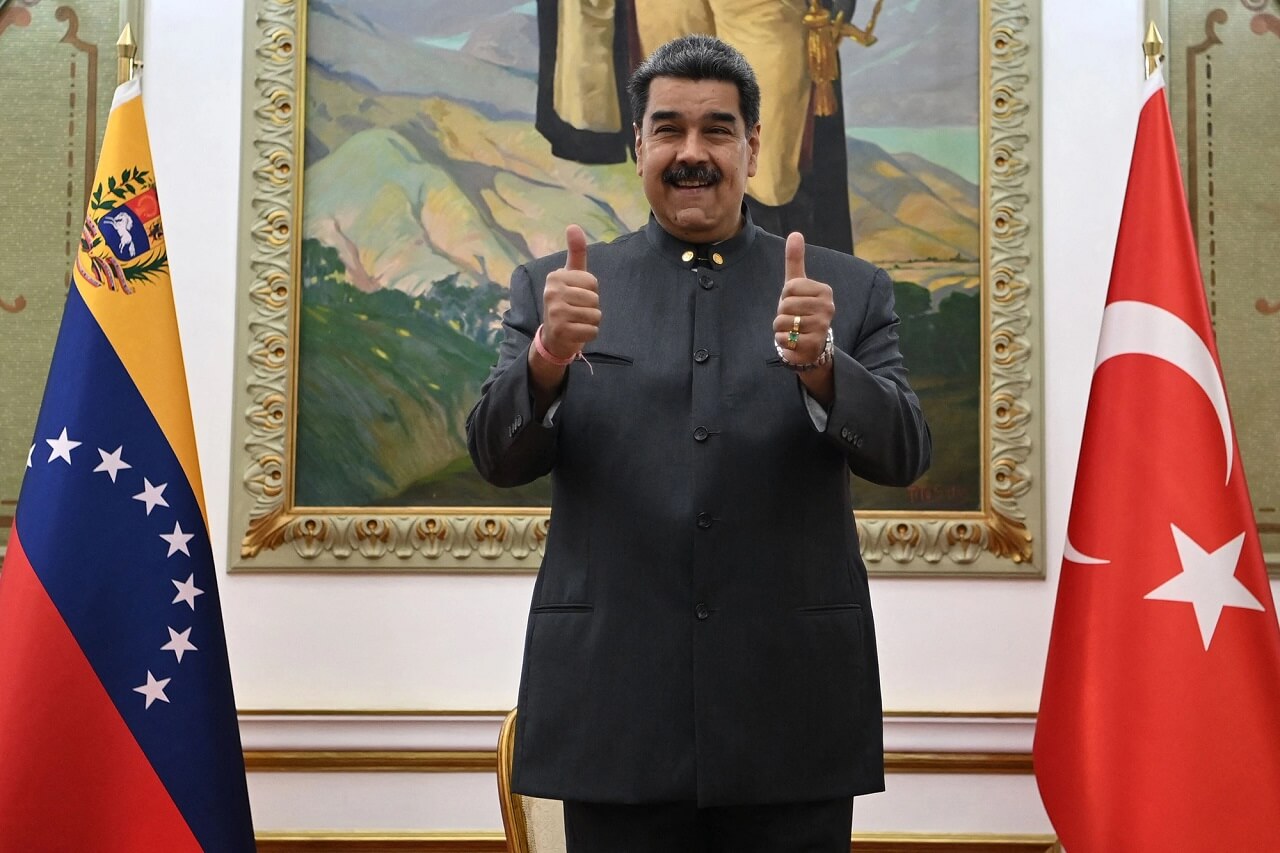Two senior Biden administration officials told CNN and the Associated Press on Tuesday that the United States (US) will relax some energy sanctions against Venezuela in order to incentivise the resumption of talks between Venezuelan President Nicolás Maduro and opposition leader Juan Guaidó, whom the US continues to recognise as the legitimate leader.
The move will allow Chevron Corp, the only remaining US oil firm in the oil-rich South American country, to negotiate its licence with the Venezuelan state-owned Petróleos de Venezuela (PDVSA), which was first sanctioned by the Trump administration back in 2017.
Sanctions announced Monday are directed at 7 human rights abusers/corrupt individuals in #Venezuela, not its people or economy. (1/4)
— Brian A. Nichols (@WHAAsstSecty) March 11, 2015
However, despite the change in policy, drilling and export of the country’s oil will continue to be prohibited, with a Biden administration official saying, “Fundamentally, what they’re doing is just allowed to talk.”
Additionally, Carlos Erik Malpica-Flores, an official of the PDVSA and the nephew of the first lady, will also be removed from the list of sanctioned individuals.
However, 140 entities, including the Attorney General and the Central Bank, will remain sanctioned. In fact, Maduro himself is under indictment in the US on charges of conspiring to “flood the United States with cocaine” and leverage the drug trade as a “weapon against America.”
Nevertheless, Vice President Delcy Rodríguez welcomed the move, saying she hopes it will “pave the way for the absolute lifting of the illegal sanctions that affect all of our people.”
SCOOP: Senior BIDEN administration officials are traveling to Venezuela today to meet with MADURO's regime.
— Kenneth P. Vogel (@kenvogel) March 5, 2022
It's part of an effort to drive a wedge between Venezuela & Russia, & is the highest-level visit by US officials to Caracas in years. https://t.co/LSu8eclb8M
The measure was made at the request of the opposition, with the US continuing to stress on the need for democratic elections, maintaining that Maduro’s re-election in 2018 was illegitimate. The government suspended talks with the opposition back in October after Venezuelan businessman and close Maduro ally Alex Saab was extradited to the US on money-laundering charges.
In fact, following the US’ announcement, the two sides resumed negotiations in Mexico on Tuesday.
Until 2019, Chevron continued to produce roughly 200,000 barrels per day. However, in 2020, the US government told the company it could only conduct ‘essential work’ on its oil wells and “preserve its assets and employment levels” in the country. Its operations in the country are estimated at around $2.6 billion.
The sanctions relief follows a visit by senior White House officials to Caracas in March, during which the two sides discussed a relaxation of sanctions in exchange for the release of two American prisoners who have been illegally held.
Another day, another concession to yet another dictator. Lifting sanctions in #Venezuela legitimizes #Maduro and does nothing for the Venezuelan people. This is another missed opportunity by the Biden administration to promote U.S. interests and freedom abroad.
— Jeanette Nuñez (@LtGovNunez) May 17, 2022
The sanctions relief follows a visit by senior White House officials to Caracas in March, during which the two sides discussed a relaxation of sanctions in exchange for the release of two American prisoners who have been illegally held.
In fact, one of those released was Gustavo Cárdenas, one of the CITGO 6, a group of oil executives who were arrested on corruption charges over three years ago after being lured to Caracas under the false pretence of doing business with PDVSA.
Biden has officially surrendered to Latin American dictators.
— María Elvira Salazar 🇺🇸 (@MaElviraSalazar) May 17, 2022
Yesterday, he gives American business to the Cuban regime. Today, he removes sanctions from Maduro in Venezuela to purchase blood-stained oil.
We will not forget this November.
At the same time, the visit of the White House officials also came as the US looks for alternative oil suppliers to Russia in light of the Ukraine war. In fact, White House Press Secretary, Jen Psaki confirmed that “energy security” was discussed during the trip.
The shift in global politics amid the Russian invasion of Ukraine has also prompted the US to assuage tensions with Moscow’s Latin American allies and seek alternative oil supplies in the wake of a possible embargo on Russian oil.
Now more American money for Cuba’s dictators too? Team Biden making Iranian mullahs, Maduro and his thugs in Venezuela and now Cuban dictators rich and their people poor. This is bad for their citizens and bad for America. https://t.co/tgdC8QfqsW
— Mike Pompeo (@mikepompeo) May 17, 2022
Aside from Venezuela, the Biden administration also rolled back Trump-era restrictions on Cuba, whereby it will increase visa processing in Havana and also allow charter and commercial flights to land in airports outside the Cuban capital. At the same time, limits on family remittances have been removed.
These decisions could be an effort by the Biden administration to protect ties with other countries in the region, particularly after many of them threatened to boycott the upcoming Americas Summit in Los Angeles unless the US reconsiders its decision to not invite Venezuela, Cuba, and Nicaragua. Washington is keen to keep them on board in order to stem the flow of illegal immigration into its borders as well as restrict the expanding footprint of China, which has signed cooperation agreements with 20 out of 24 countries in the region.

